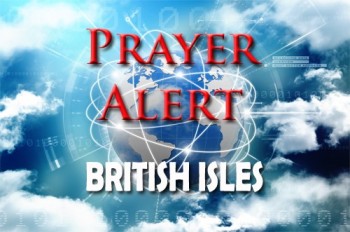Displaying items by tag: international politics
USA / Iran: options over nuclear deal
US secretary of state Antony Blinken said, ‘The US and its allies want to bring Iran back into compliance with the nuclear deal, including looking at all of the options necessary if diplomacy doesn’t work.’ He was commenting on US talks with Germany, France and Britain about Iran. ‘We are absolutely together in lockstep on how we are approaching the challenge of getting Iran back into compliance with the nuclear agreement,’ he said. ‘And that’s new because we’ve actually been at odds in recent years. But we do not yet know if Iran is willing to come back, engage in a meaningful way, and get back into compliance. If it isn’t, if it won’t, then we are looking together at all of the options necessary to deal with this problem.’
US-UK special relationship: Biden and Johnson?
Boris Johnson and Joe Biden met on 10 June. Joe Biden has Irish roots, and many believe Britain should not underestimate the strength of his feelings against tinkering with the Northern Ireland Protocol if it puts the Good Friday agreement in jeopardy. Boris Johnson wants to ‘tinker’, putting the agreement at risk. He was seen by many Americans as Britain's equivalent of Donald Trump, and indeed he was lavish in his praise of the former president. But British PMs need to get on with whoever is America’s president. Boris, from a privileged background, needs to get on with Joe, who is from a poor working-class background. The one thing the two men do have in common is that they both are Catholics: one is a practising believer, the other needs more practice.
Boris Johnson and the Saudis
Parliamentary papers revealed that Boris Johnson had a £14,000 all-expenses-paid trip to Saudi Arabia, two weeks before the murder of journalist Jamal Khashoggi in its Istanbul consulate. Mr Johnson flew to Jeddah for a three-day visit, where reportedly all expenses were paid by the ministry of foreign affairs. His goal was to meet regional figures to promote education for women and girls. When he was foreign secretary, he refused to back halting arms sales to Saudi Arabia, and was accused by human rights groups of blocking a UN investigation into Saudi war crimes committed in Yemen. The UK government’s support of the country has not wavered. Although the USA calls for a Yemen ceasefire (see the World article ‘Yemen: vision of ceasefire), Theresa May does not support this move, telling MPs that it would only work if there is a political deal between parties. See
USA: Trump’s attitude to dictators
Donald Trump has enthusiastically expressed personal admiration for notorious authoritarian leaders. Recently he sent a message to Philippines president Duterte: ‘I want to congratulate you because I am hearing of the unbelievable job on the drug problem.’ Duterte’s crackdown on the drug trade has included extrajudicial killings of 7,000+ people. On President al-Sisi of Egypt, Trump said, ‘He has been very close to me from the first time I met him. He’s done a fantastic job in a very difficult situation’. Al-Sisi has a stranglehold on Egypt’s political system, and is actively crushing any civic groups or media outlets that criticise his rule. Trump also described the president of China as ‘a good person who wants to do right, representing his people’. China’s one-party state aggressively censors the internet, persecutes ethnic and religious minorities, bans all political opposition, and recently cracked down on human rights lawyers attempting to defend the victims of such abuses.
Theresa May at the UN
In a keynote speech at the UN General Assembly, the Prime Minister said Britain will continue to be the second biggest contributor to the UN, but warned that 30% of the annual £90 million funding for agencies would be ring-fenced for those showing ‘sufficient results’. She said the UN must change ‘in order to meet the challenges of the 21st century’. This echoed President Trump's earlier message that financial contributions to the UN were now under threat. Mrs May vowed Britain ‘will never let anyone destroy our way of life’, following recent terror attacks. She condemned the Assad regime's use of chemical weapons in Syria and North Korea’s controversial nuclear weapons programme, and warned Donald Trump that withdrawing from the Paris climate change treaty ranked alongside North Korea’s nuclear missile tests as a threat to global security.




